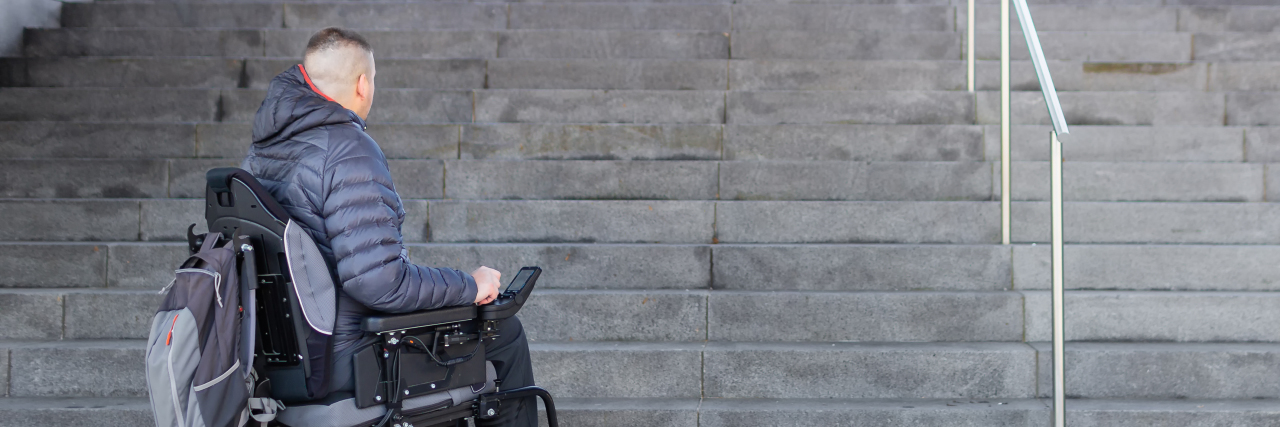“Neutrality helps the oppressor, never the victim.” So declared Elie Wiesel in his 1986 Nobel Peace Prize acceptance speech. No clearer is this maxim borne out than in journalism as it pertains to disability rights. For far too long, neutrality in news reporting has been a cover for framing disabled people’s access needs in the least charitable light.
On Sunday, July 25, The New York Times Magazine printed an article where disability needs and those who sue for them were pitted against the livelihoods of business owners. Entitled “The Man Who Filed More Than 180 Disability Lawsuits: Is it profiteering — or justice?” author Lauren Markham framed the choice as one between siding with “serial” A.D.A. litigants like Albert Dytch and small business owners, who may not even be cognizant that they are breaking the law.
Focusing on how inaccessible society still is after 31 years of the Americans With Disabilities Act and then asking for a comment from an offending business owner would have been good journalistic practice, highlighting the battle for disability justice but giving the establishment a chance to share its side of the story. That would have been the perfect example of holding oppressive societal structures to account, but being fair enough to allow all parties to comment.
Instead, Markham chose balance, the sort of neutrality between justice and injustice that does not acknowledge that even if plaintiffs profit from ADA lawsuits and even if business owners do not know that their buildings are inaccessible, a society where disabled people don’t have the ability to eat in a restaurant is still an unjust one. After all, whether a mom and pop business knows it is violating the law is immaterial to the reality that it is one cog in an oppressive machine of inaccessibility for disabled individuals, which culminates in them having less ability to enjoy their lives than the nondisabled majority.
The Society of Professional Journalists’ Code of Ethics specifies that reporters should, “Be vigilant and courageous about holding those with power accountable. Give voice to the voiceless.” The New York Times Magazine article violates this principle by not holding the powerful structural inequities and those who contribute to them to account, instead portraying accessibility lawsuits as if they were a debate, not a necessity in ensuring a just society. While disabled people are not voiceless, their needs could certainly be amplified by not resorting to false dichotomies.
Markham cites the astronomical growth of ADA lawsuits as proof that litigants may be exploiting the system, instead of framing the issue as a matter of a growing clamor for disability justice. “In 2012, plaintiffs filed 2,495 Title III cases in federal court,” she wrote. “By 2017, that had more than tripled to 7,663 cases — more than half of which were filed in California or Florida, whose state laws can be particularly beneficial to ADA plaintiffs.” Regardless of the pecuniary motive, creating a society where disabled people can go anywhere and have access to all the same services as nondisabled individuals should be the emphasis of the reporting, not potentially lining the pockets of plaintiffs.
A better framing of the article would have been, “Civil Rights Champions: Inside the Battles of the Disabled Litigants Ensuring That Businesses Are Accessible for All.” The emphasis would have been on disability justice, not on money, and on why the lawsuits are important, regardless of how many an individual plaintiff or law firm files. In writing about justice for oppressed groups, the framing of an article makes all the difference — especially for disabled people during Disability Pride Month. Moreover, it is consequential in how the public views matters of equity. Furthermore, when news reporting reaches large audiences, it carries a special responsibility — especially for an influential brand such as The New York Times. That duty is to strive for holding the powerful to account, instead of providing a misleading sense of balance that serves only to hinder marginalized populations like disabled people.
Getty image by 24K Production.

